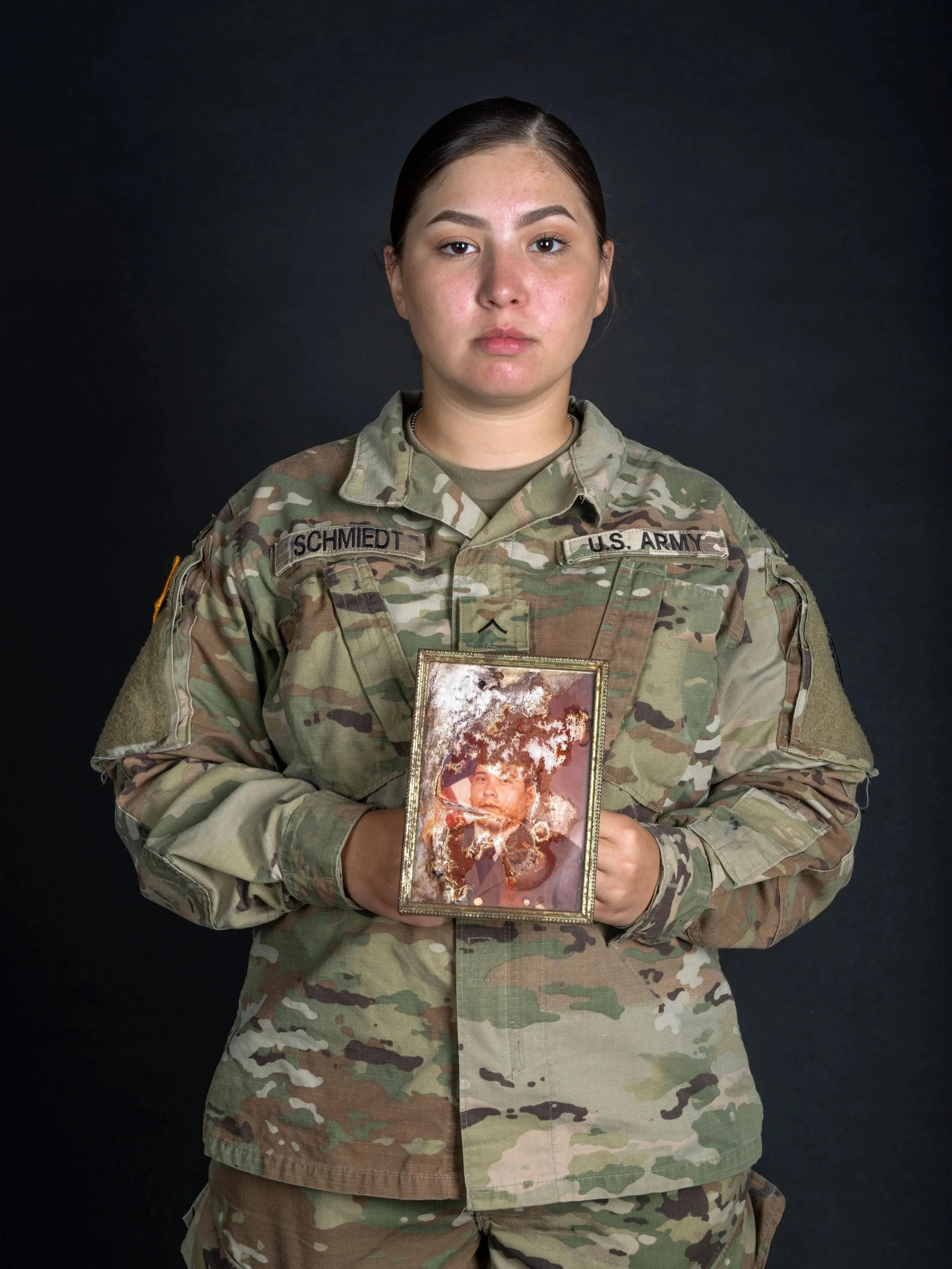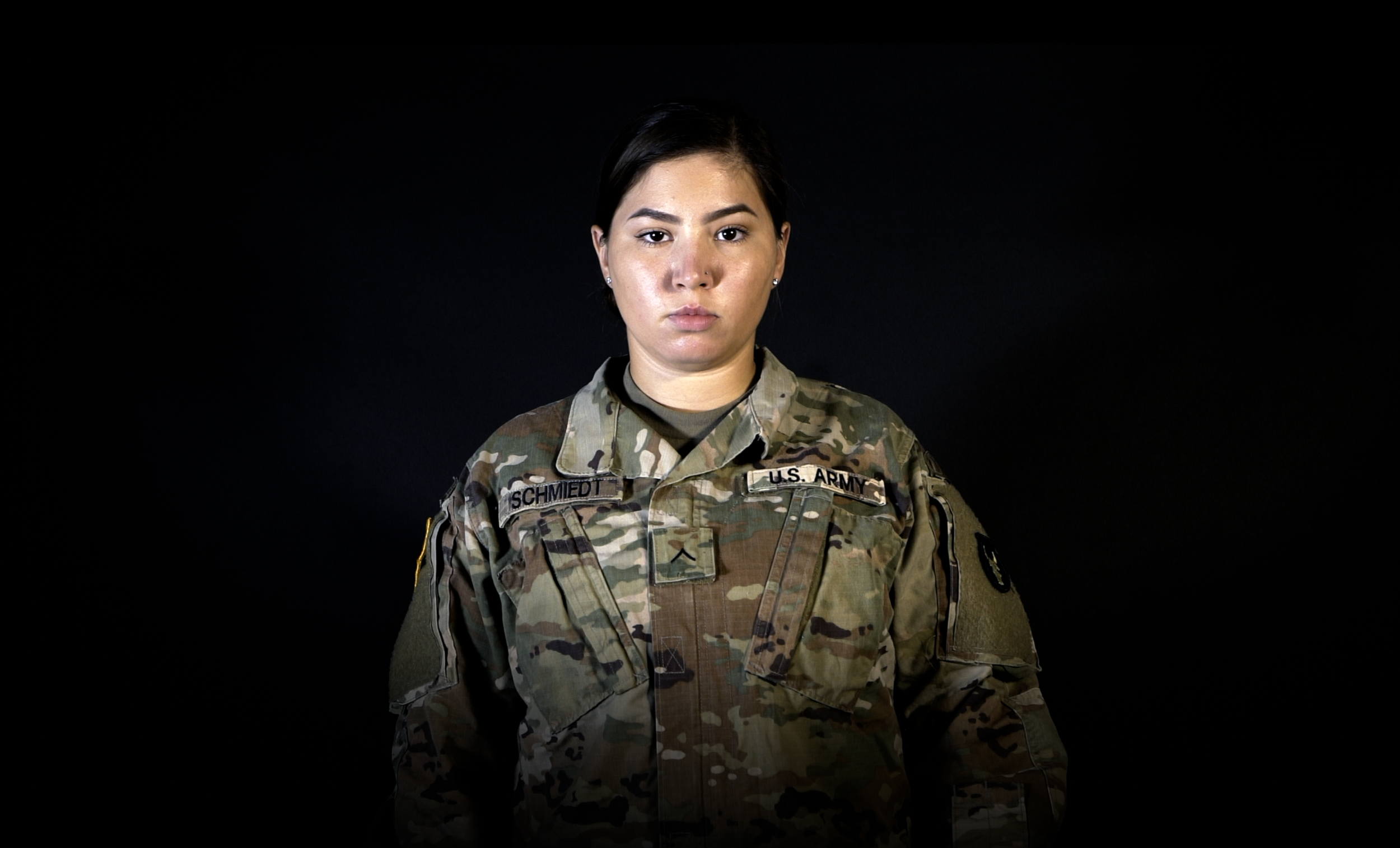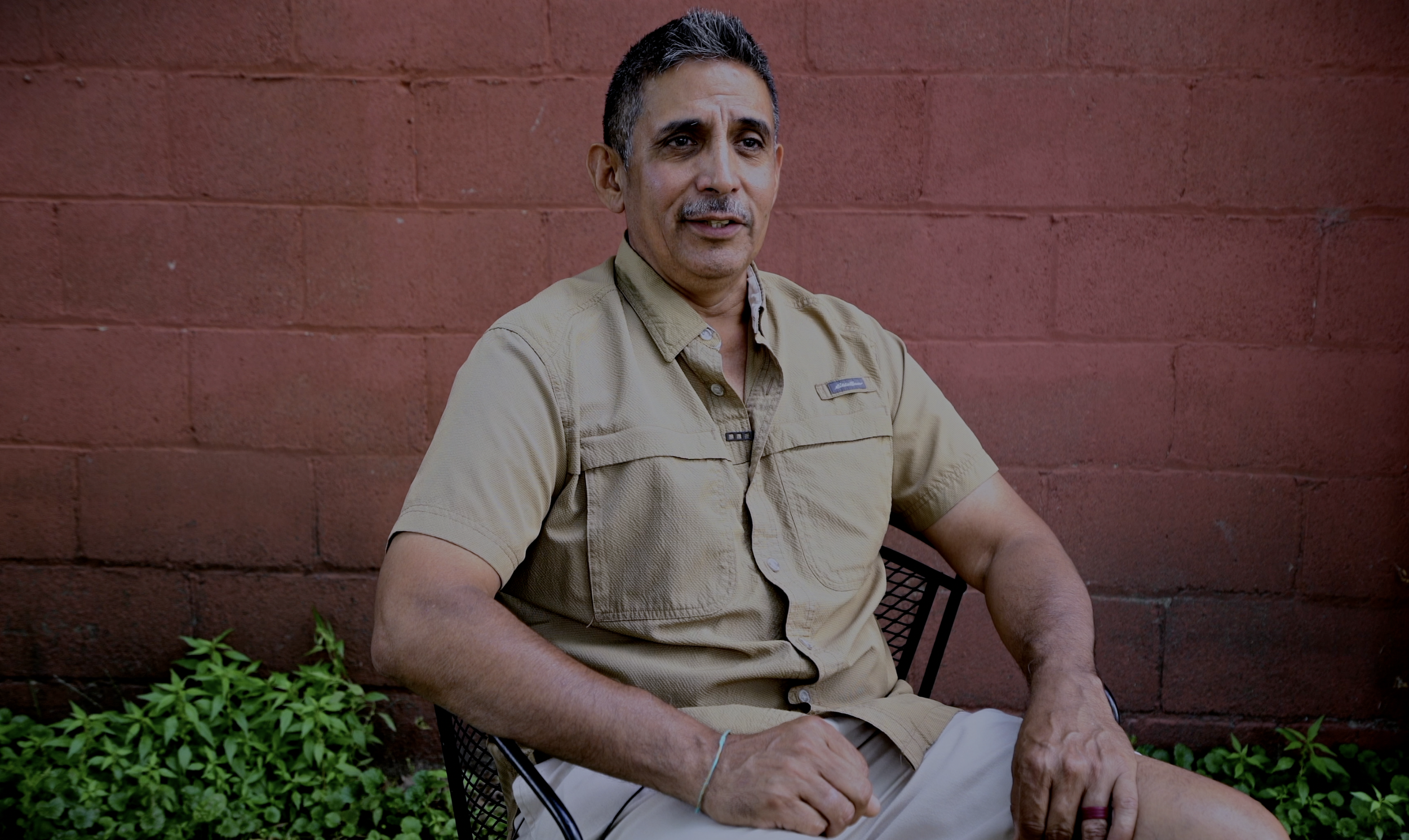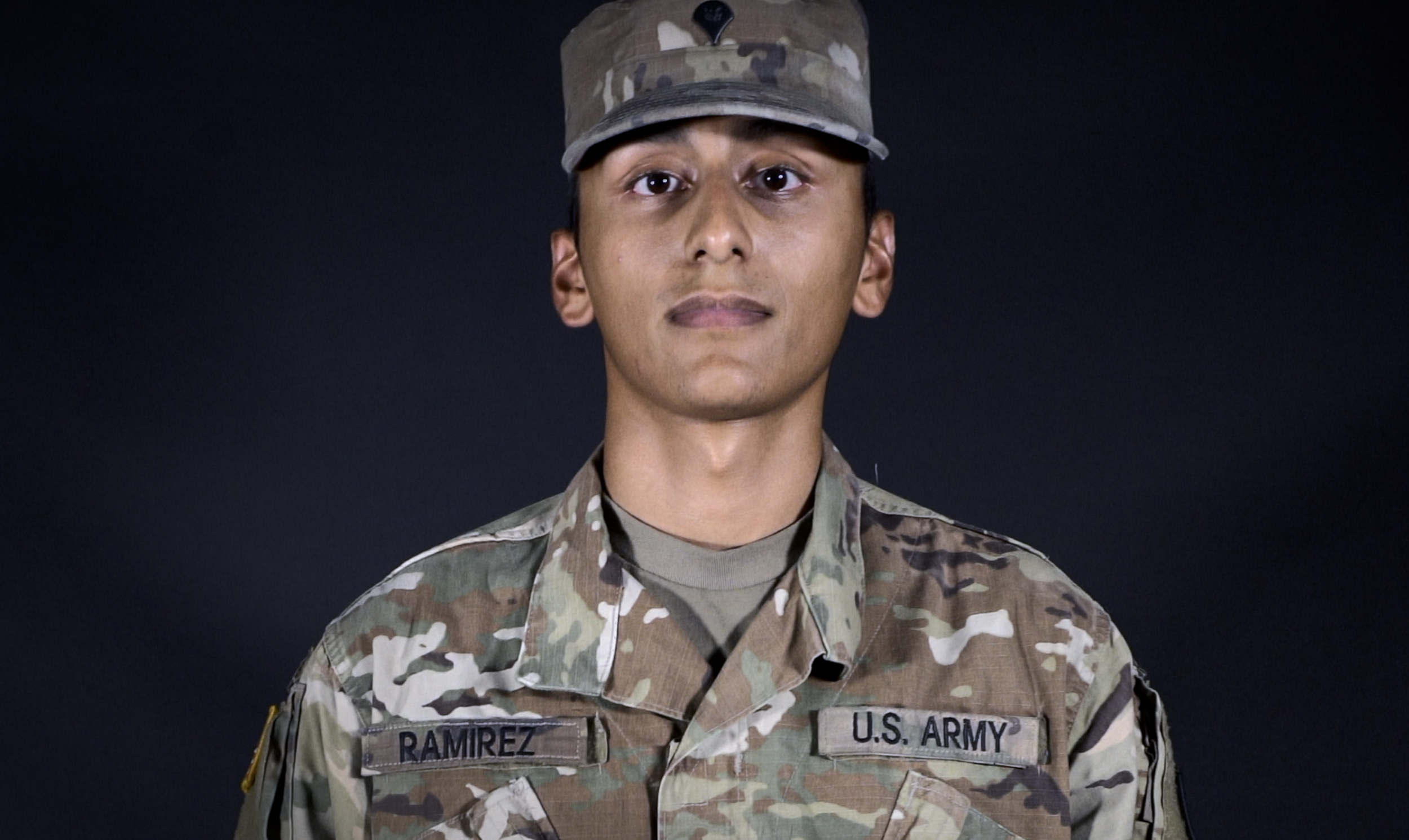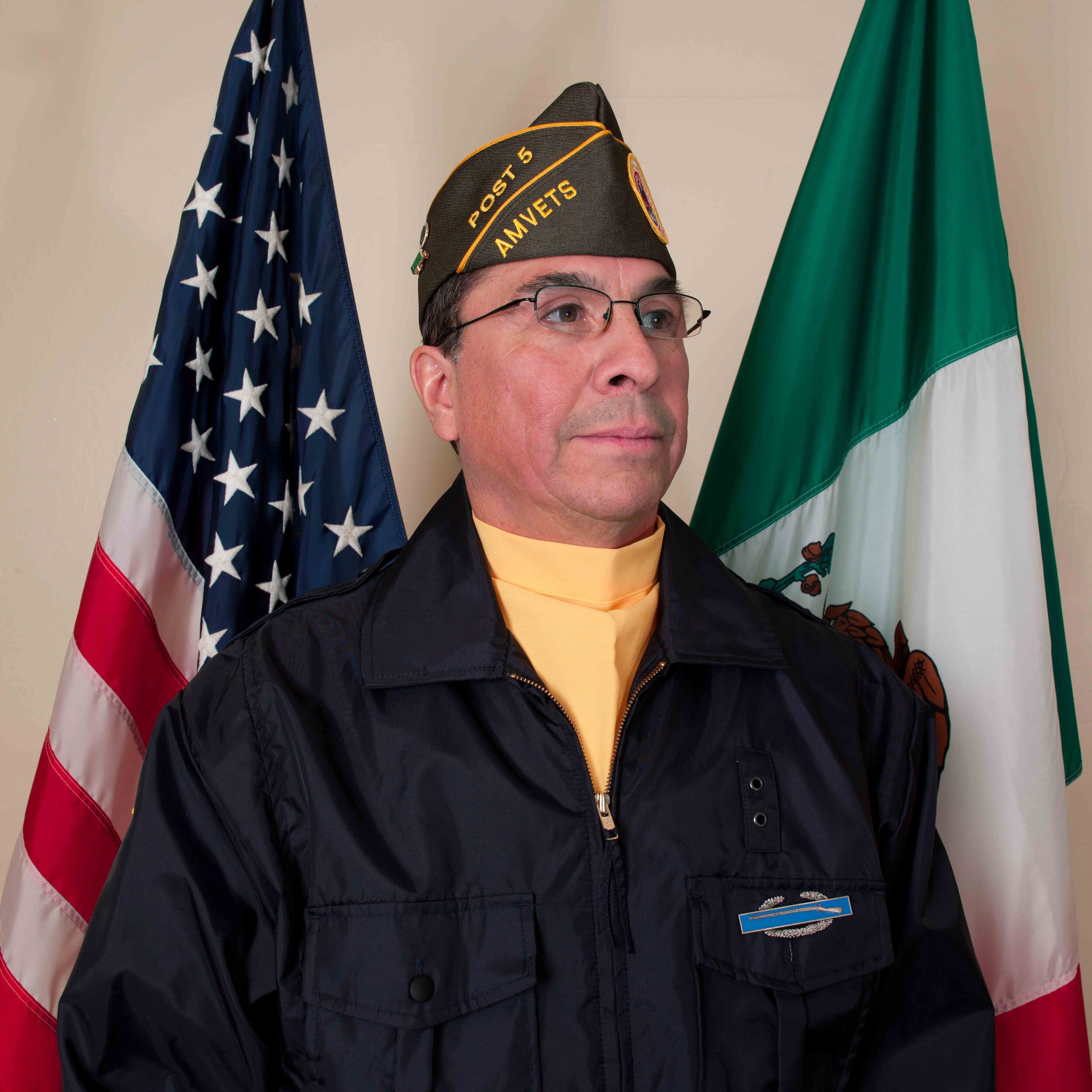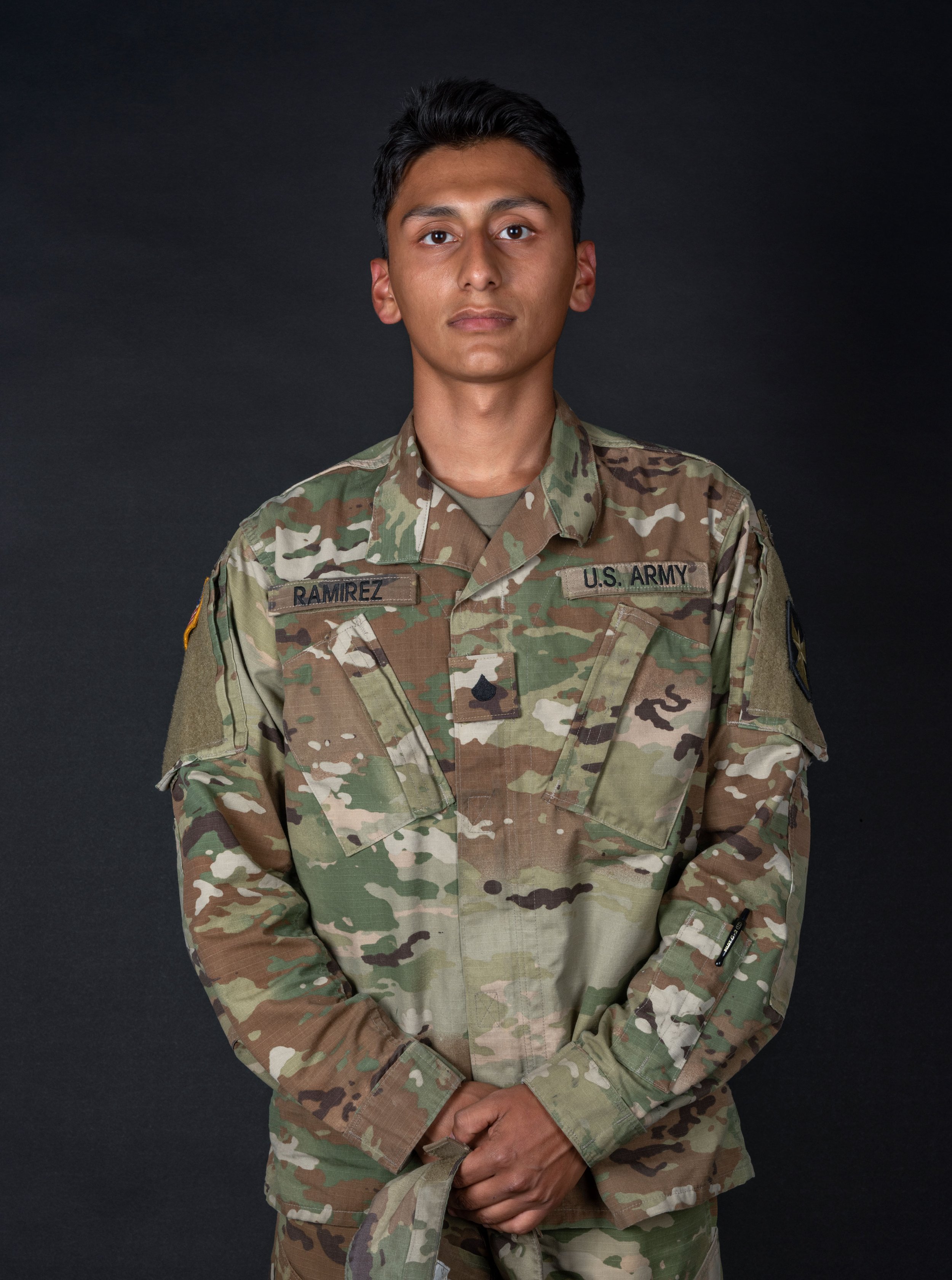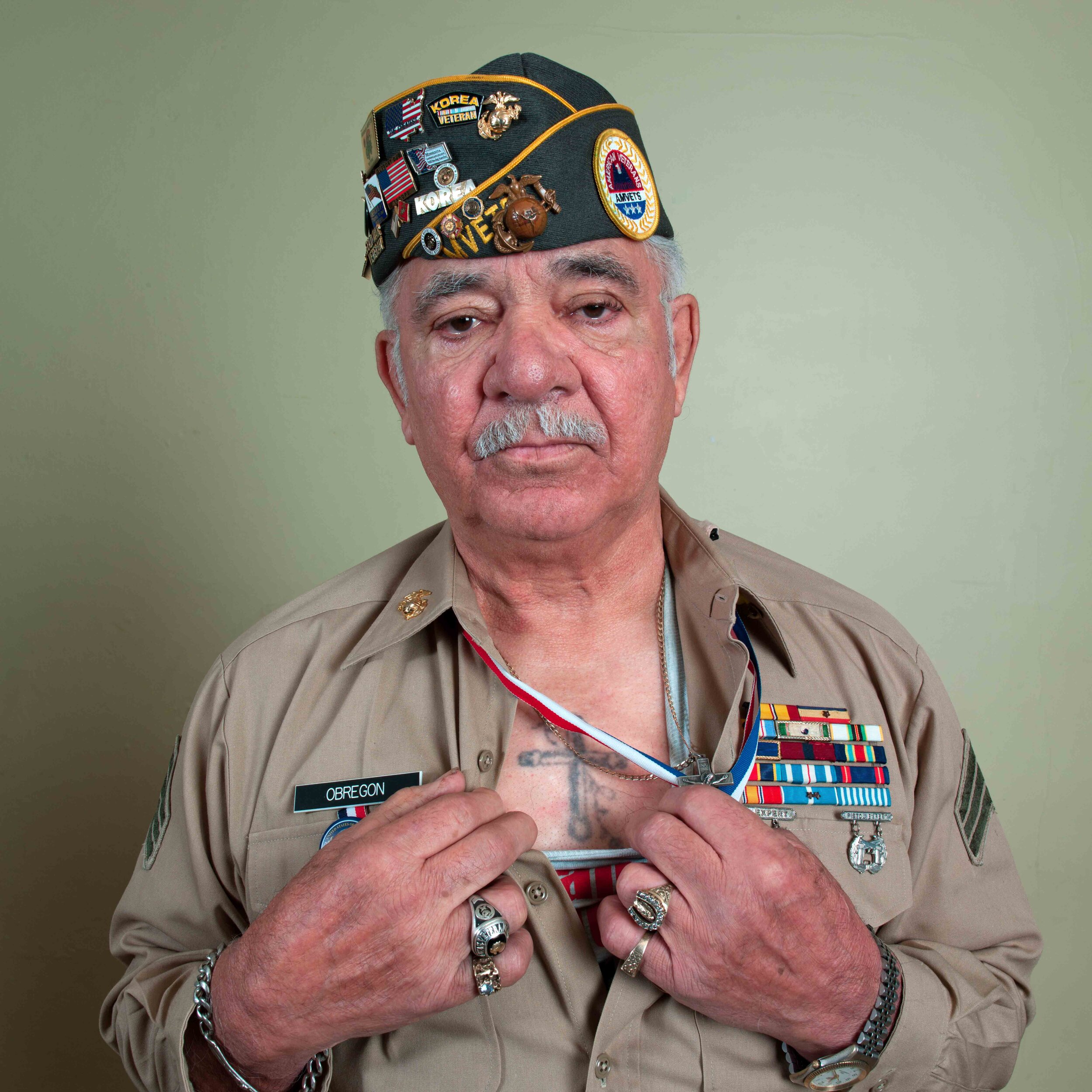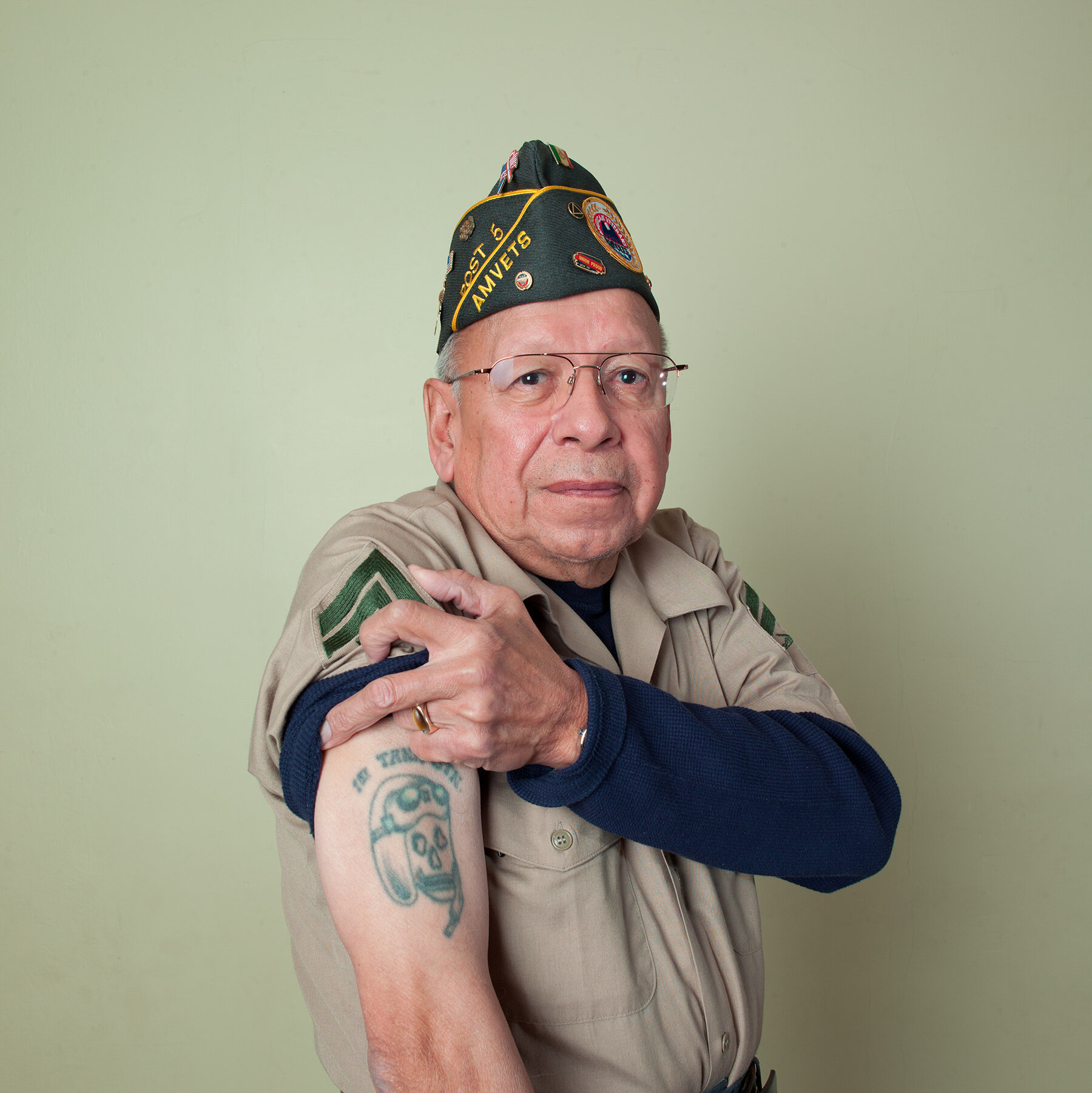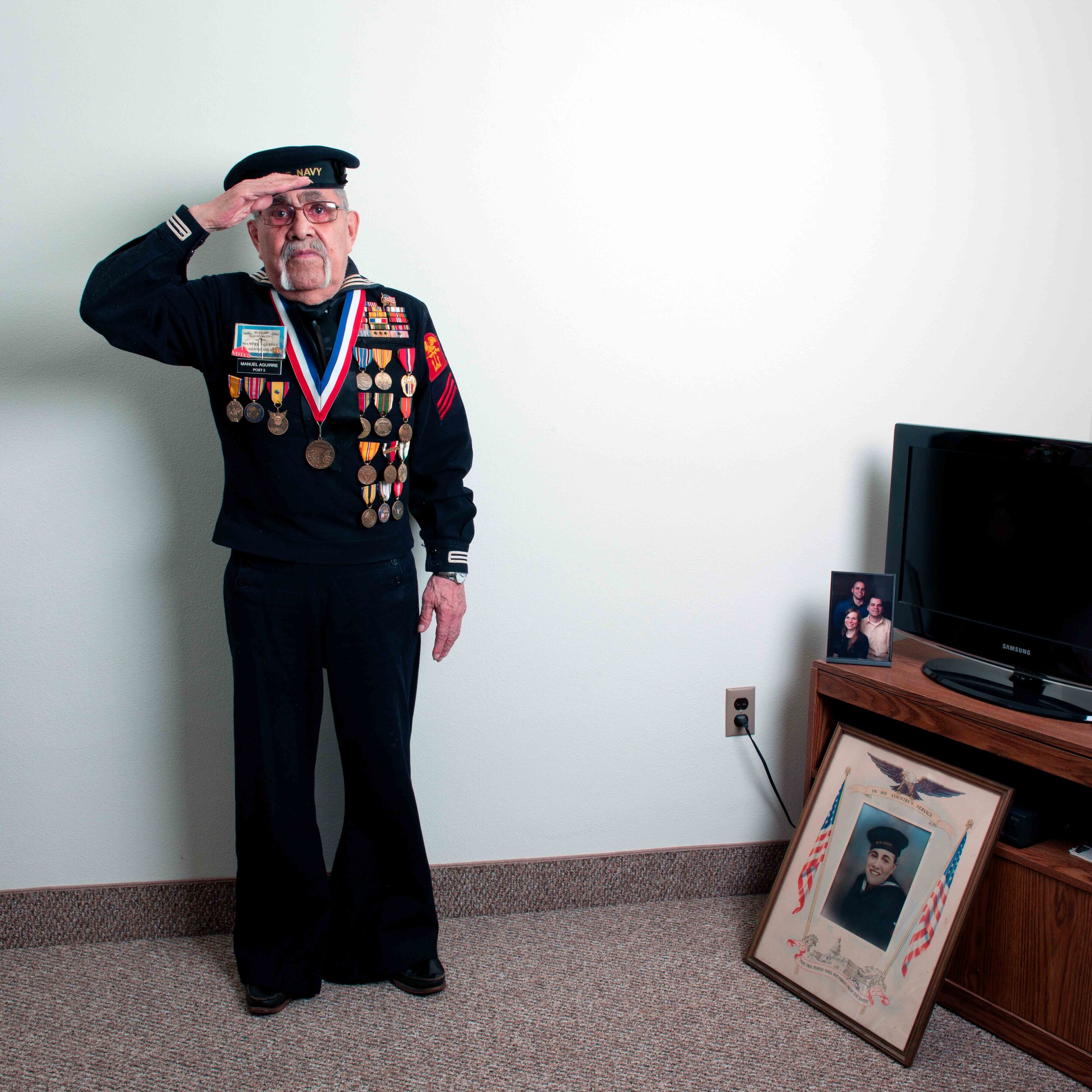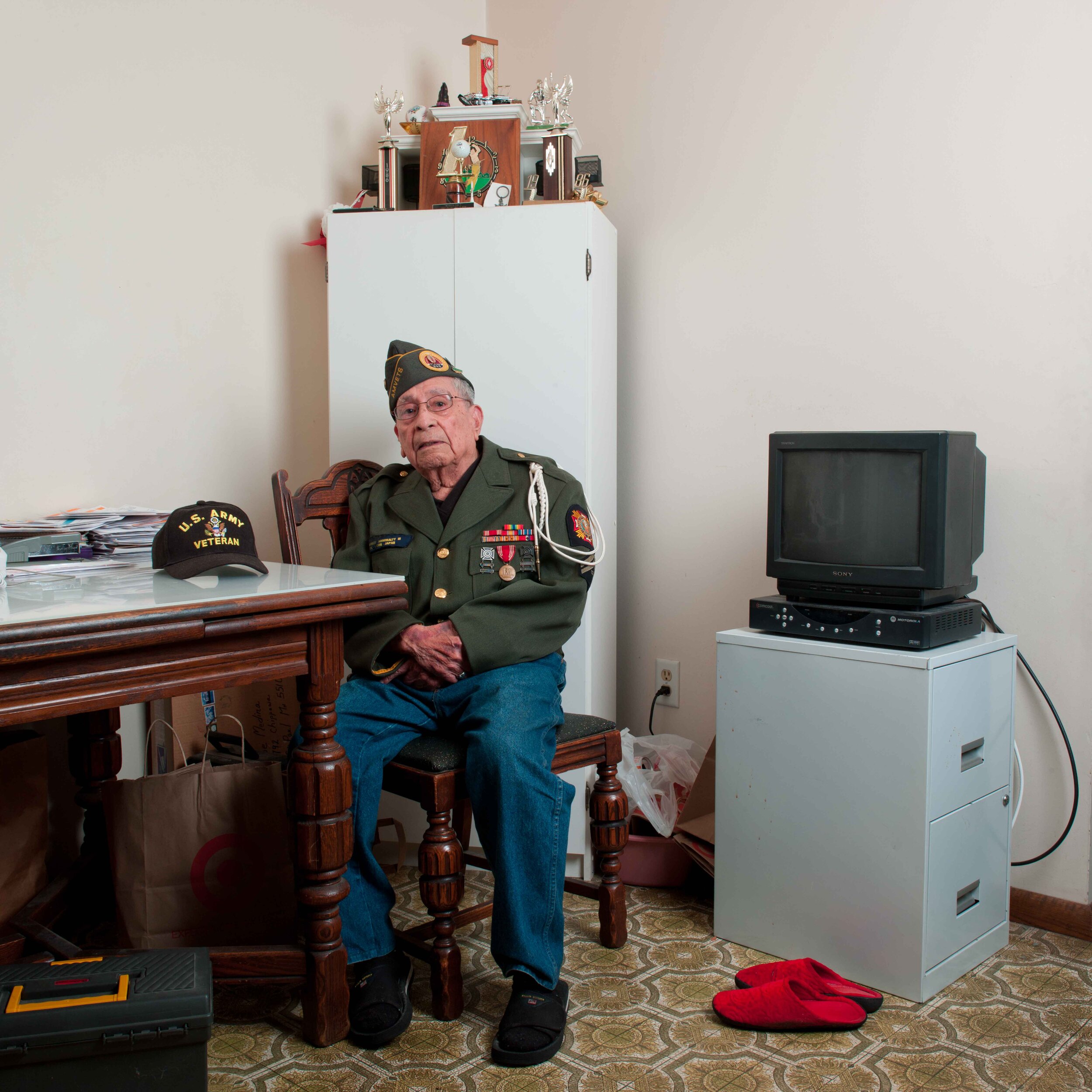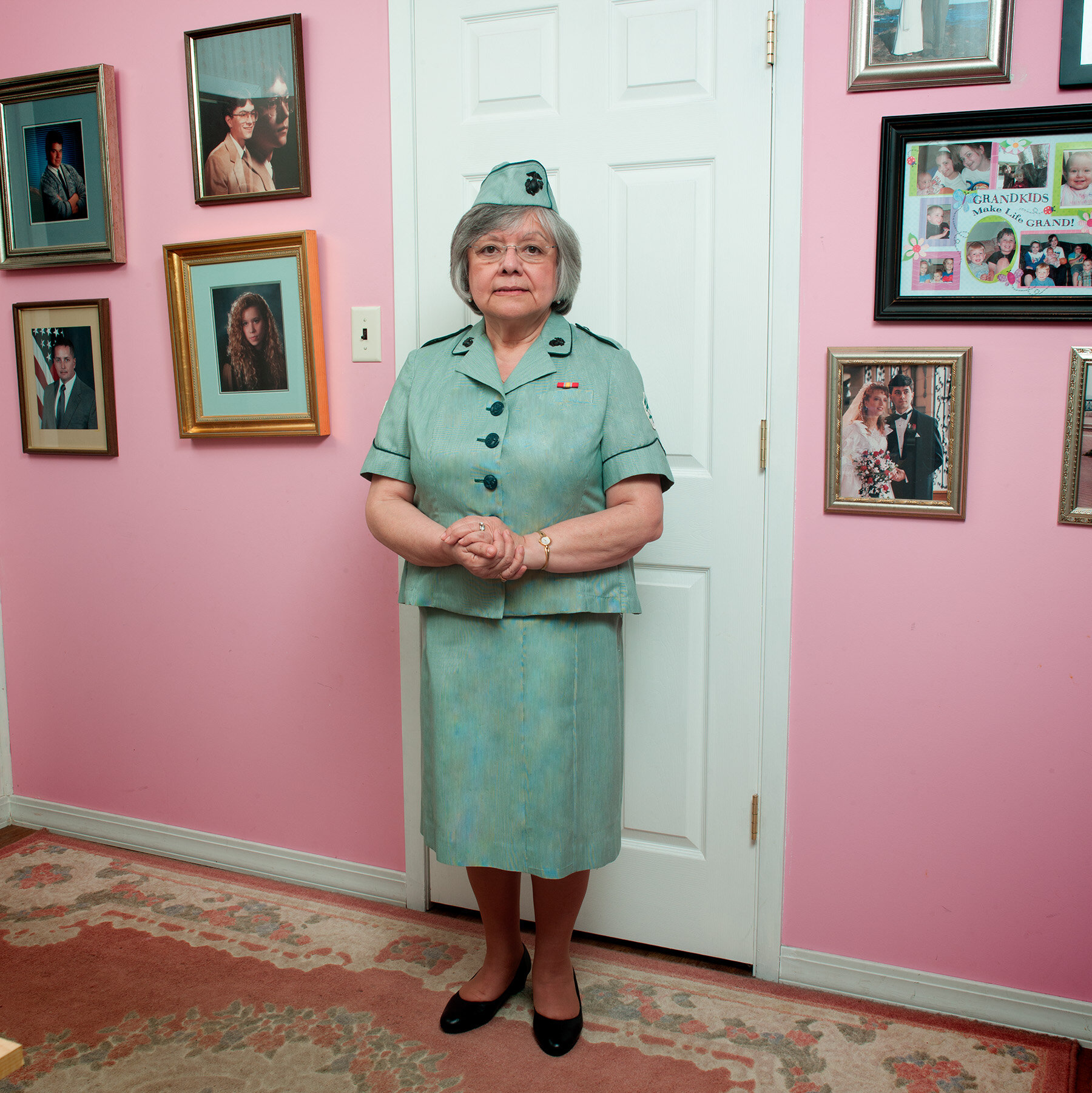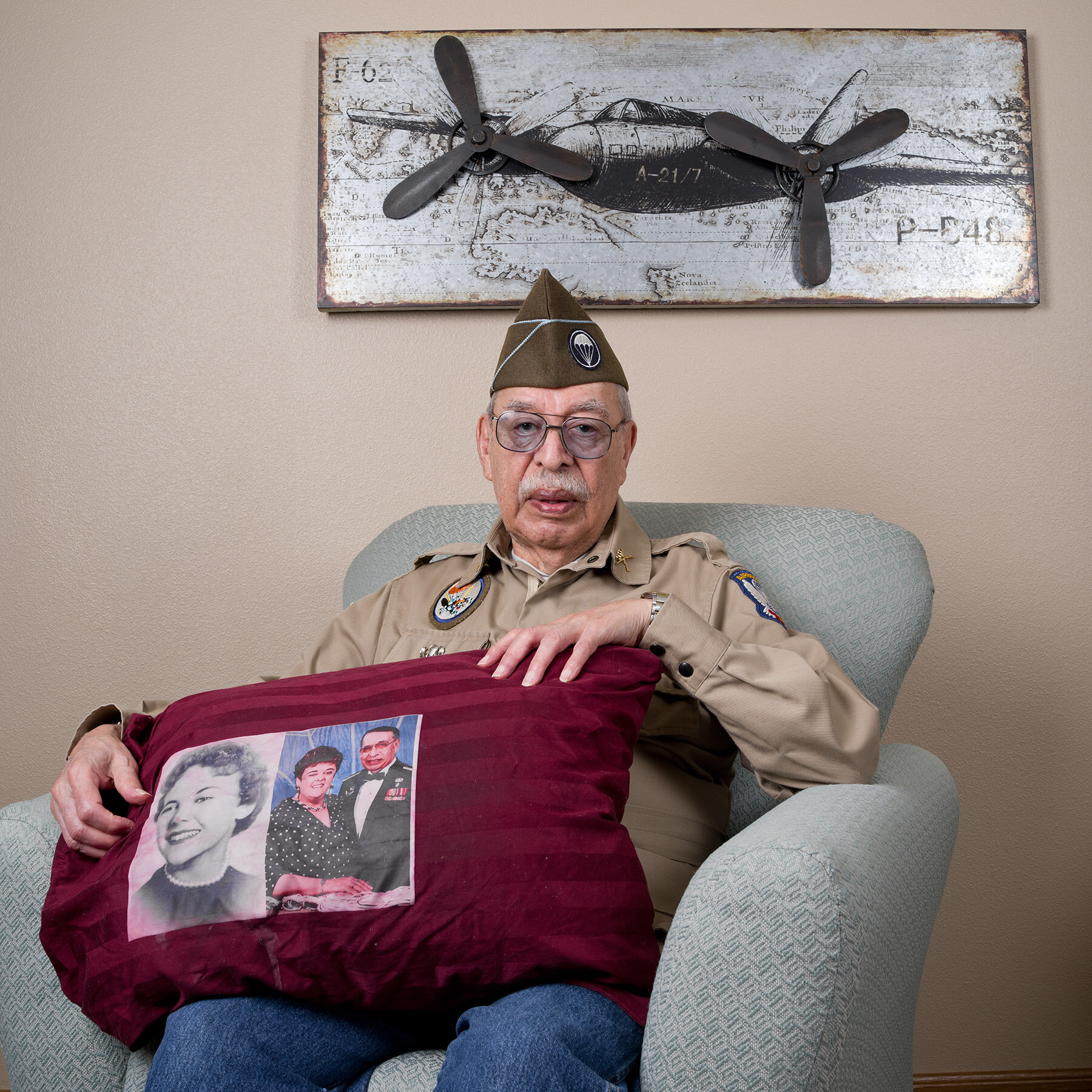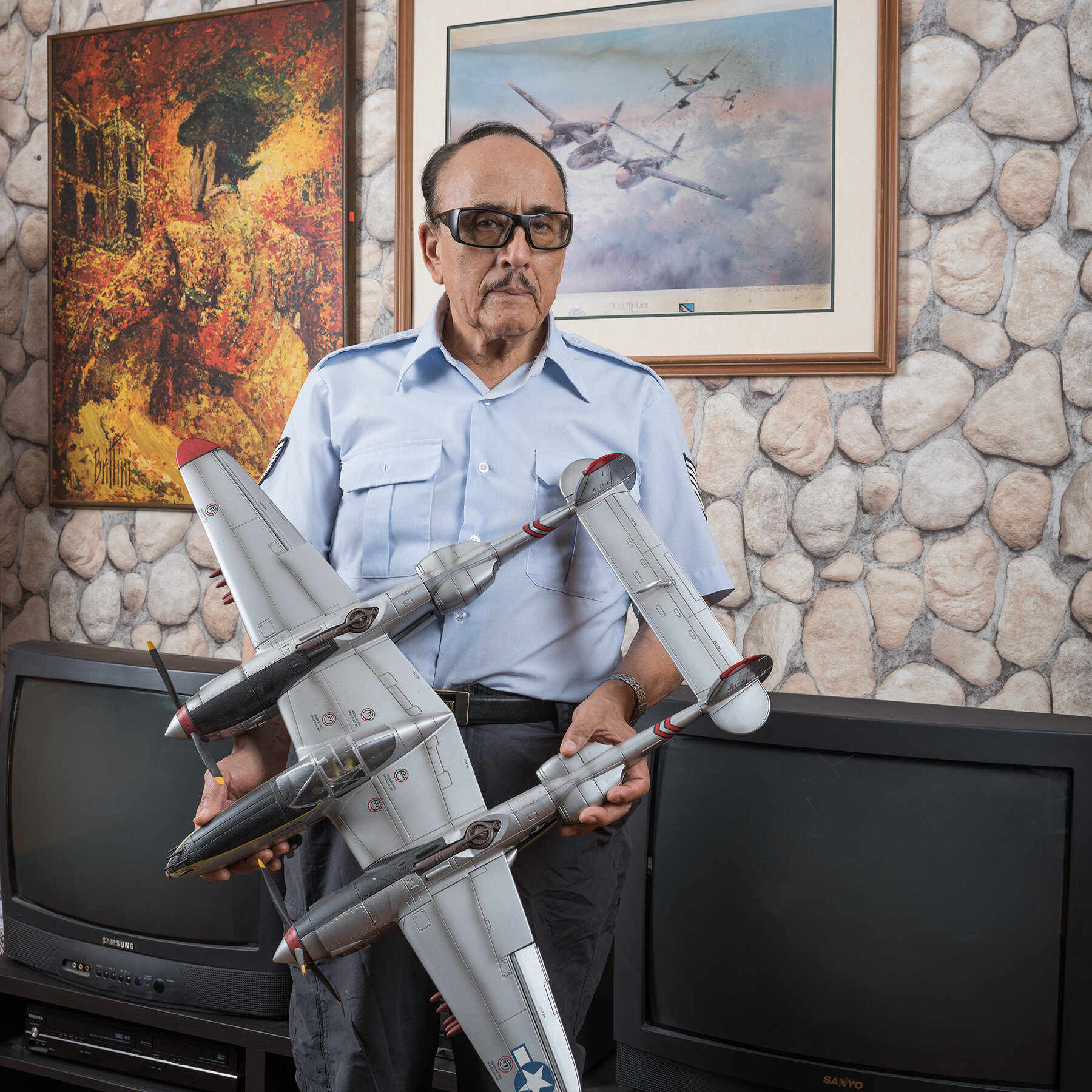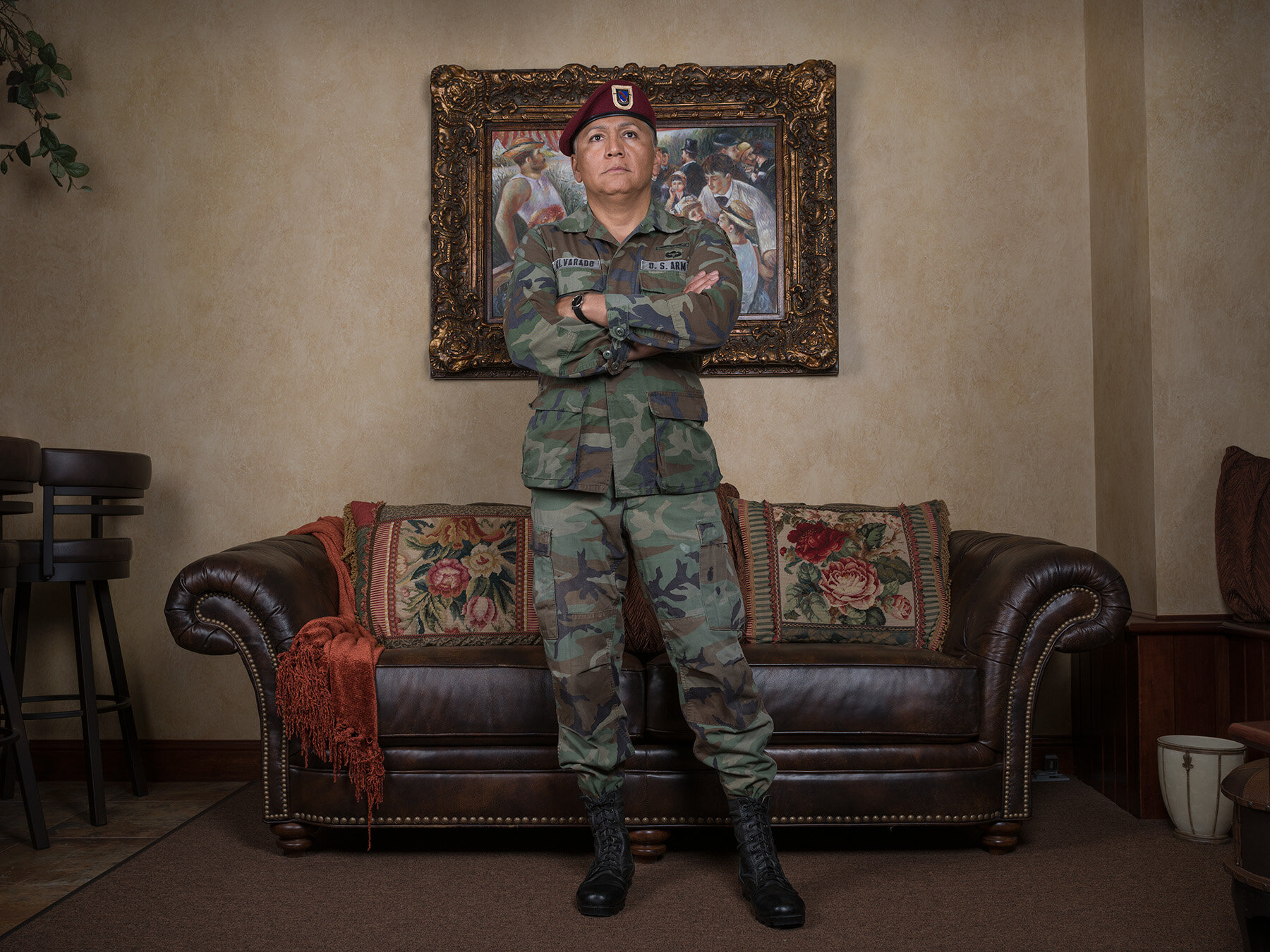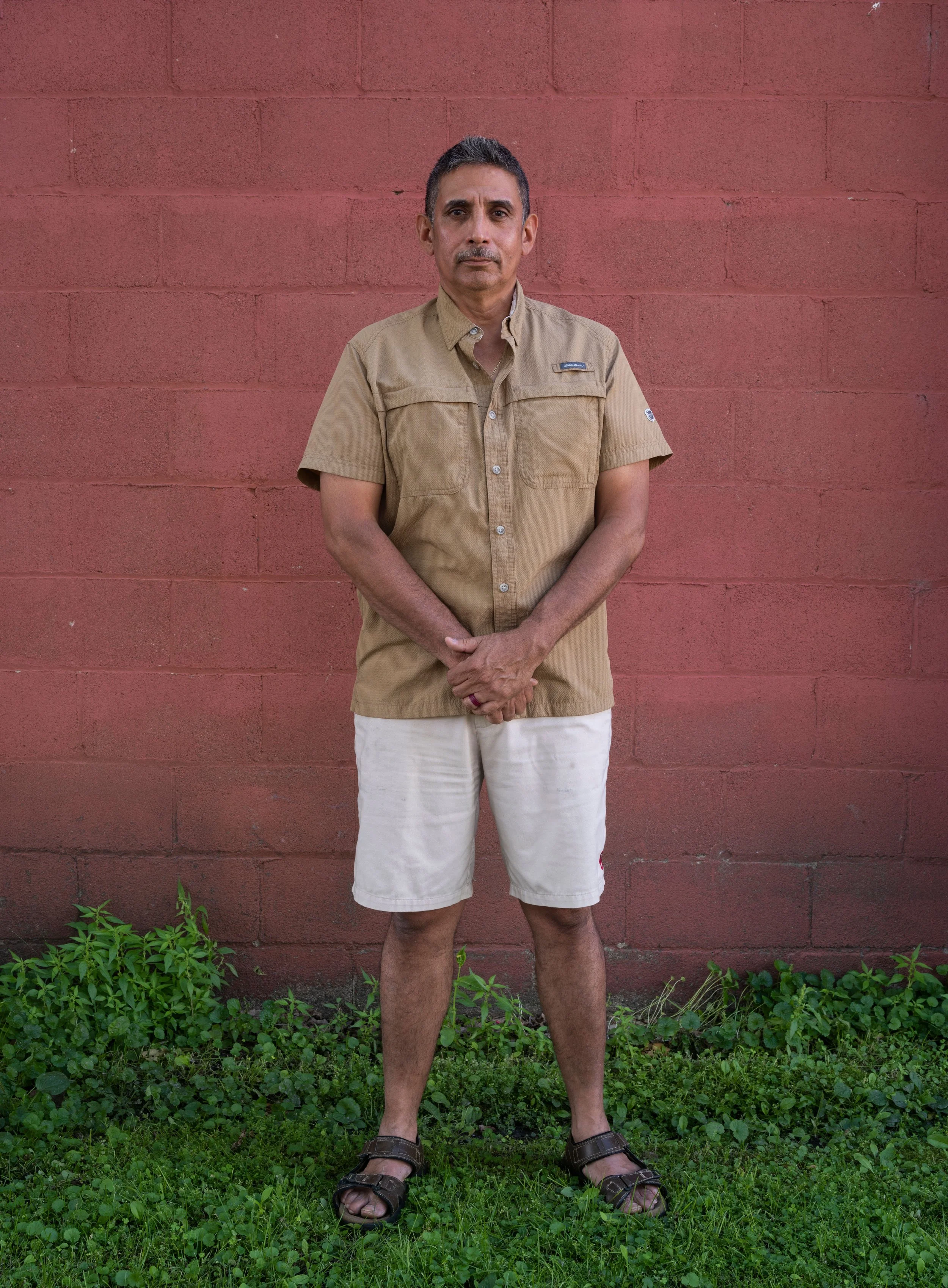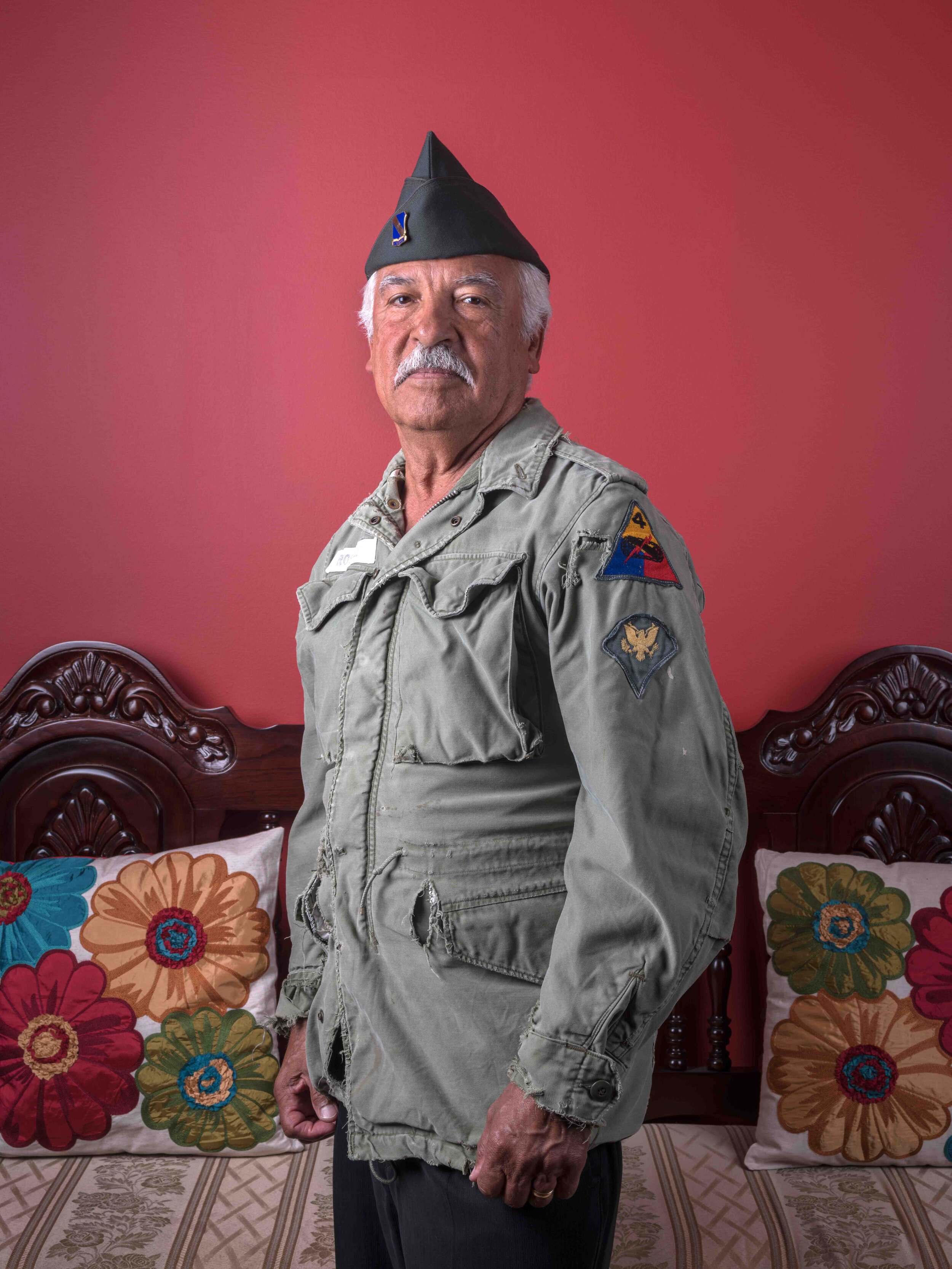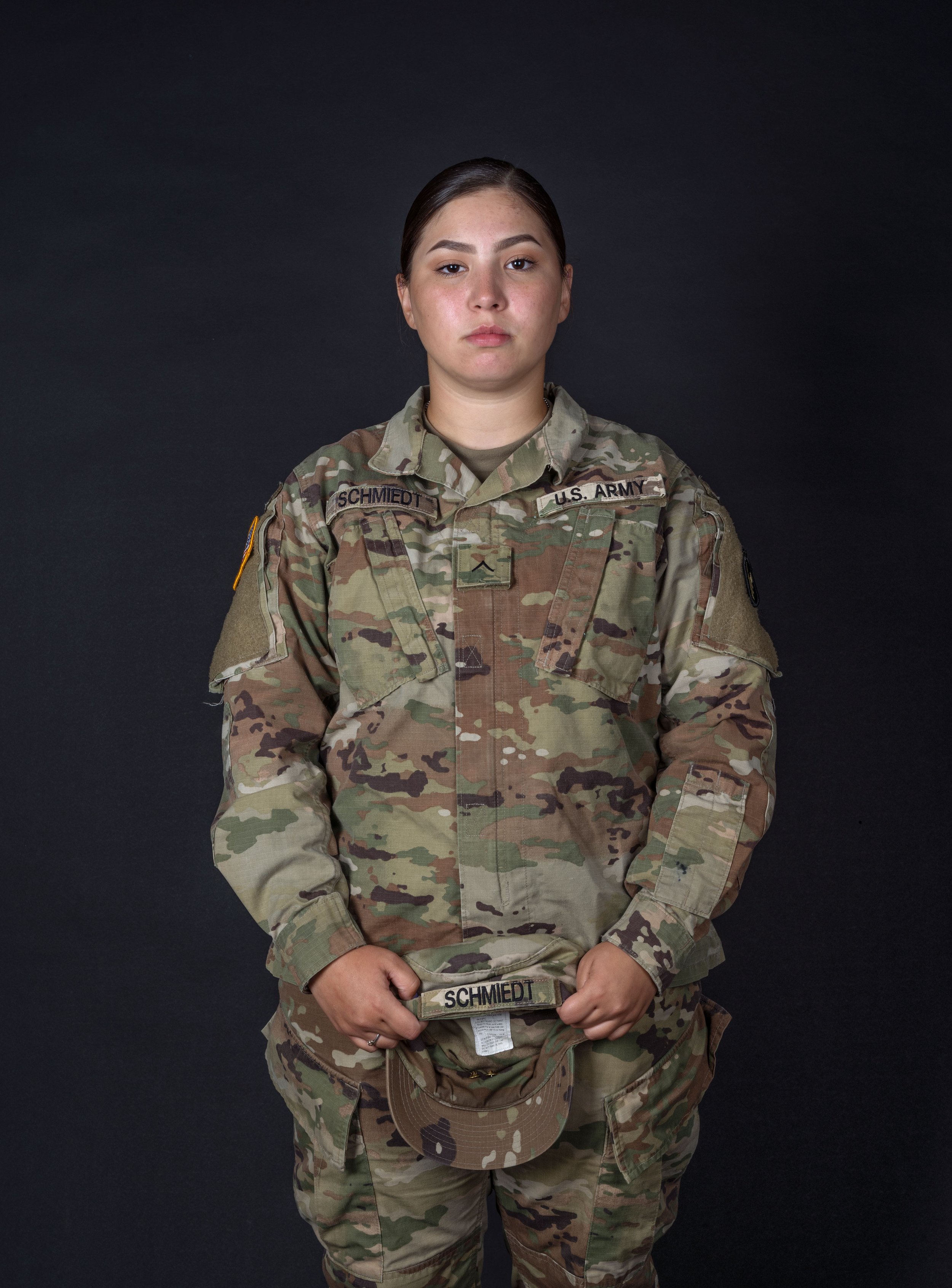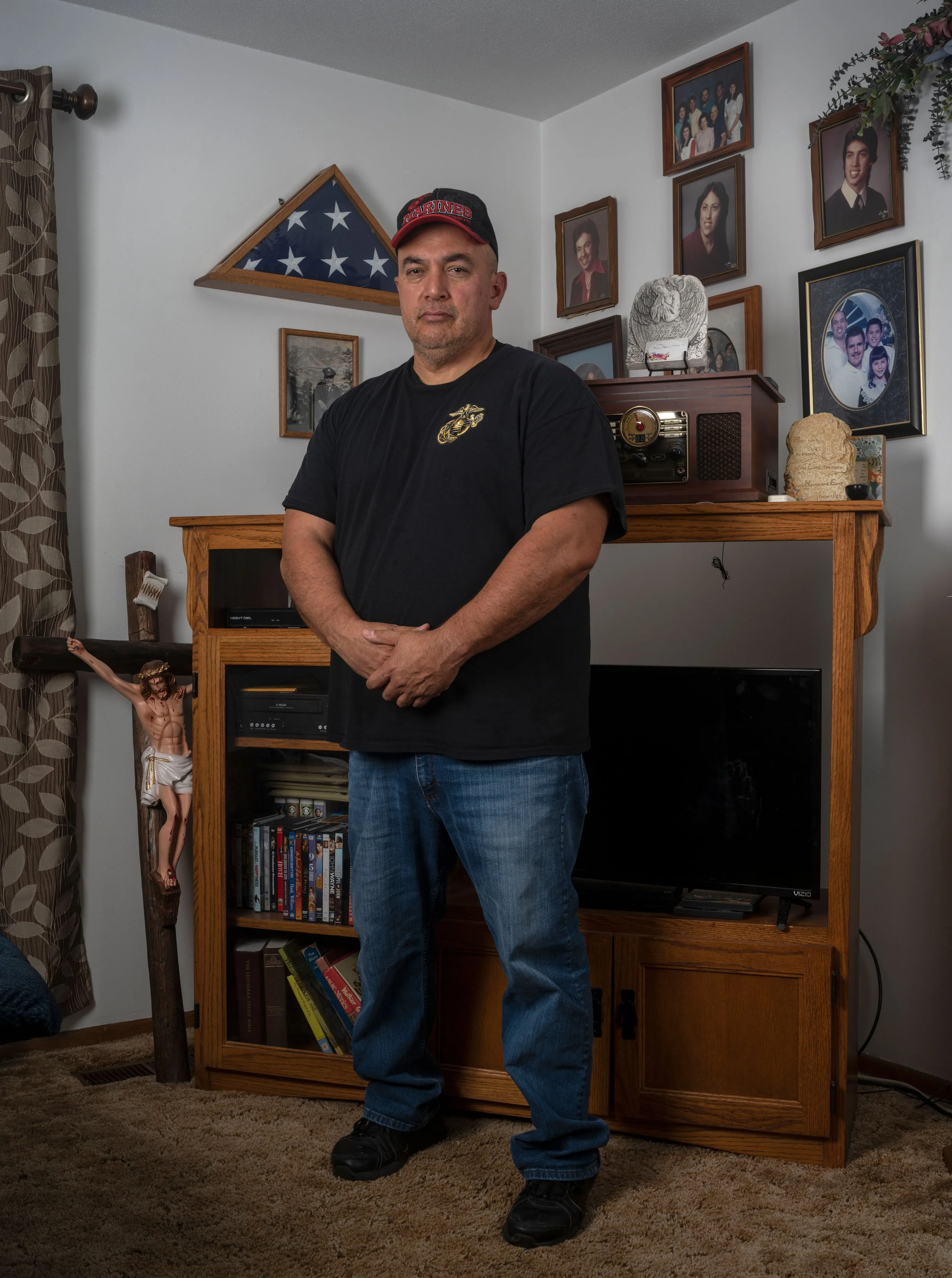VETERANA/OS
circa 2020 / 2025
Nuestro Servicio Militar - Our Military Service
These videos honor Latinx service members who share personal reflections on duty, identity, and resilience within the U.S. military. Together, their stories reveal the pride of service, the challenges of breaking barriers, the importance of family and community support, and the strength found in discipline, leadership, and advocating for equity and respect.
Vetrano - Memories of Military Service As A Mexican American
Artist statement by photographer Xavier Tavera
Photography’s main concern is time and memory. A couple hundred years of photography has helped us memorialize people and historical moments compressed into fractions of a second to create a memory. As a documentary photographer, I began to seek out veterans about 7 years ago because I had an interest in gaining a better understanding of their lives and their experiences. A journalist friend of mine Alberto Luck, mentioned Escuadron 201, a group of veterans in Mexico, who lacked recognition for their military service. The Mexican 201 Fighter Squadron assisted the Allied war effort during World War II. The squadron was known by the nickname, Aquilas Aztecas or Aztec Eagles. Although they were deemed successful, they are barely mentioned in a couple of paragraphs in the Mexican history textbooks. Also, the monuments dedicated to them are few and scattered throughout Mexico.
I approached the photographic project with extraordinary caution as I knew little about the military. My first face-to-face encounter was with Capitan Manuel Cervantes Ramos, a Mexican World War II veteran that received me at his home in Mexico City. When we met, he was dressed in full military regalia with what I imagined were scrutinizing eyes. Although I didn’t know what to expect, I learned through his stories about his experience in the military from Mexico, to intense trainings in the U.S., to the Pacific Theater. Without knowing, he showed me all the humanity that lies silently beneath the harsh face of the armed forces.
From that encounter, he provided contact information so that I was able to secure over 10 interviews with Mexican WWII veterans. Each one of those encounters taught me something, from resilience and courage to the unbearable fear of being forgotten. Most of those soldiers have now passed away.
Some time afterwards, I began another photography project with veterans. This one here in Minnesota. With the help of Post #5 in the Westside of St Paul, I photographed and interviewed 34 Mexican, Chicano, Latino veterans. The veterans served in the United States of America military in WWII, Korea, and Vietnam. One by one, these veterans received me in their homes; shared their stories and vulnerabilities, laughs and tears, recounts of good times and bad; and most importantly a brief but meaningful time for a portrait. I gained a lot of respect for their service and it was important for me to document their contributions to the United States.
My new documentary project is about American deported Veterans portraits. These are veterans who are foreign born and served in the United States military with aspirations to become a citizen. To this day, hundreds of veterans have been deported because of struggles often related to, or repercussions of, serving in the U.S. wars. Each year, a few steps from U.S. soil in the border cities of Tijuana and Juarez, Mexico, veterans are forced to celebrate Memorial Day abroad.
A few weeks ago, I asked U.S. Army deported Veteran Hector Barajas-Varela advice on how to write a brief speech for Memorial Day 2020. Mr. Barajas, who has been awarded U.S. citizenship, lives in Tijuana and he is dedicated to providing support for deported Veterans. He stated that on Memorial Day many veterans gather at the Deported Veterans Support House. They travel to the nearby border crossing bridge carrying banners and American flags where they voice out loud the names of soldiers that have perished in exile. This year the celebration might be cancelled due to Covid 19. Mr. Barajas-Varela helps to assure deported veterans are not abandoned nor forgotten.
In all my projects and research about veterans, I discovered the majority of men and women who served this country want to be acknowledged and remembered. Each interview and encounter with veterans reaffirms that of all the fights, experienced by the veterans, the most fierce, has been the fight against oblivion.
Stories show us what we have in common with others. They help us understand the world around us and our place in history. Perhaps, with a small gesture of a photograph, I can contribute to help us remember and prevent us from forgetting.
This exhibit was made possible with grant support from the following:
McKnight Foundation
The Minnesota Humanities Center
Minnesota State Arts Board - Arts Learning Program
Northwest Minnesota Arts Council
This activity is made possible in part by the voters of Minnesota thanks to a legislative appropriation from the arts and cultural heritage fund.
For more information please send an email to info@in-progress.org
